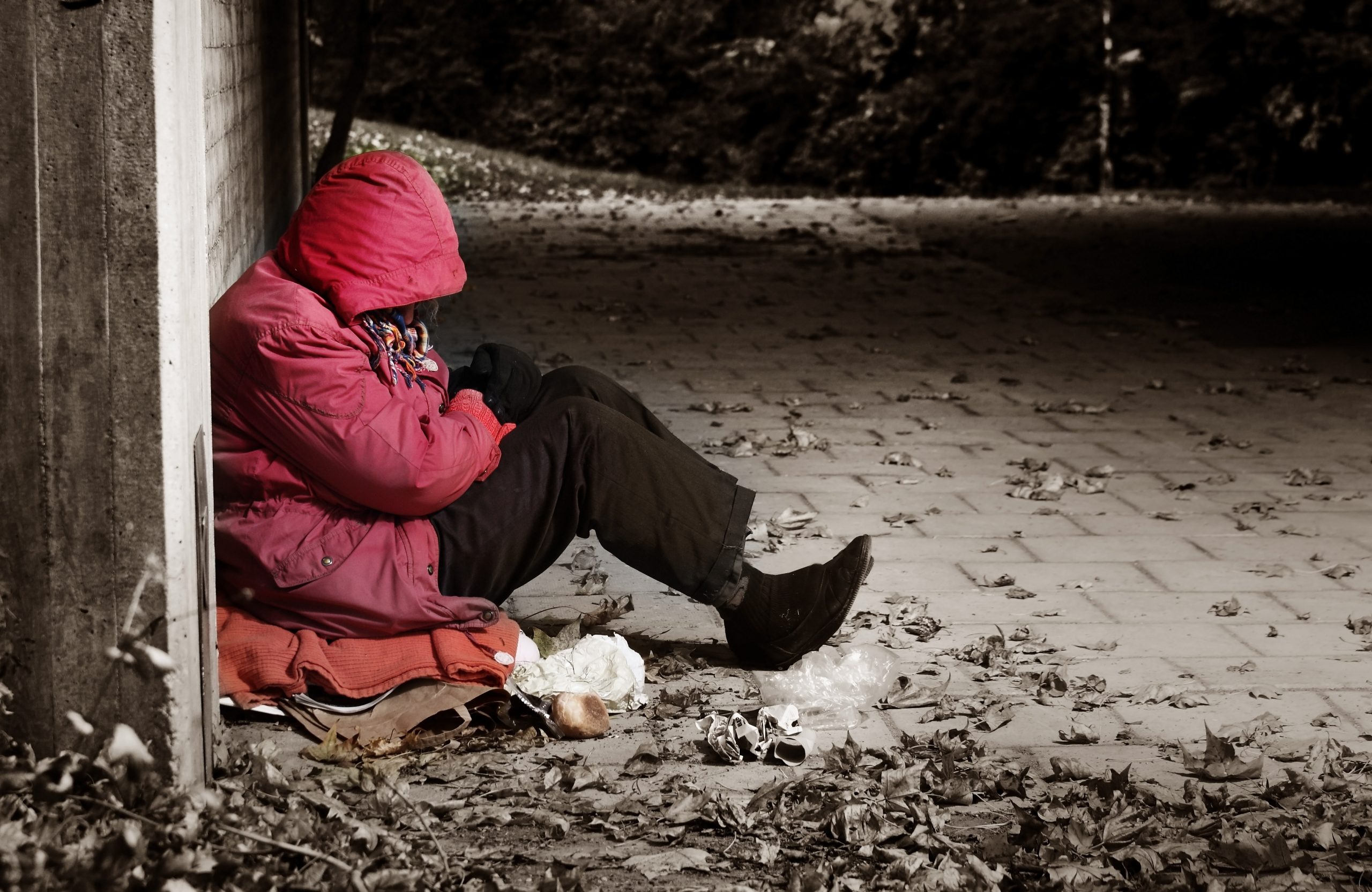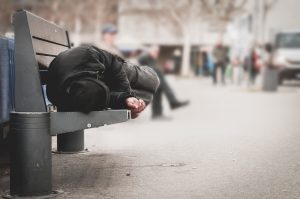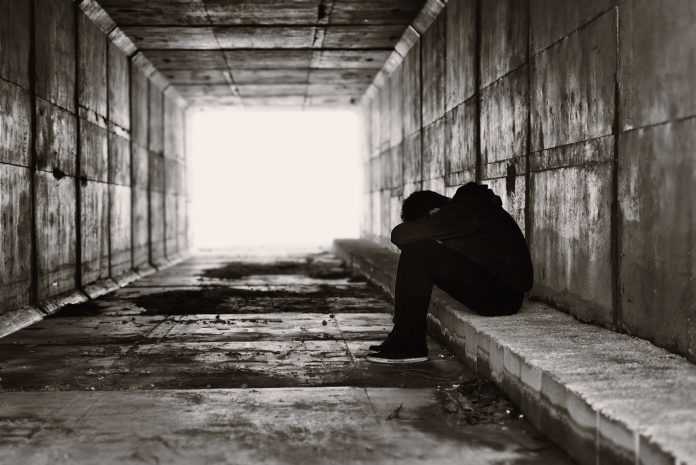Youth homelessness is escalating and desperately needs a whole-of-community effort to deliver more crisis accommodation, a Sunshine Coast service provider at the coalface has warned.
Vicky Meyer, the Integrated Family Youth Services (IFYS) executive manager – national strategy, projects and partnerships, said only 10 emergency beds were available across the region for at-risk and homeless youth.
IFYS runs a six-bed youth crisis shelter, while YouTurn youth support has four beds at its Golden Beach crisis accommodation property. But these properties are almost always at full capacity.
“On average, our crisis shelter for young people would turn away anywhere between 220-250 young people every year,” Ms Meyer said.
“Sometimes the figure is higher.
“The current housing market has made this even more of an issue because there’s no move-on accommodation.
“So, once a young person has stayed with us and they’re ready to transition into longer-term accommodation, they don’t have the ability to access safe and affordable housing.
“That limits again how many young people we can actually support.”
Ms Meyer said that, based on a basic 40-bed model, it cost about $25,000 a year to provide a roof over the head of a homeless young person in supported housing. But the alternative of leaving them to sleep rough or perhaps “couch surf” came with dire risks.
“We wouldn’t want to see our own children experience the trauma of living on the street, not knowing where they’re going to be from one night to another,” she said.
“It leaves young people really open to exploitation.
“If you’re given the choice of having a roof over your head and having to steal for somebody or being subject to child sexual exploitation … young people are being put into horrendous situations and it’s survival instinct.
“It’s time for us as a community to respond, actually step up financially and support young people locally.”

Ms Meyer said a “genuine willingness” existed on the part of the Department of Housing and local government to try to alleviate the crisis, and Sunshine Coast Mayor Mark Jamieson and Noosa Mayor Clare Stewart had both publicly acknowledged the homelessness issue in the region.
But the two tiers of government had to be joined by service providers, the community and corporate partners to make a real difference.
More than 130 local businesses and supporters pitched in to make the House The Coast Built project a reality when it opened last year in Birtinya for the Wishlist medical and hospital charity. Ms Meyer hopes a similar rallying response not only will take young people under 25 off the streets but also support them towards a brighter future.
IFYS is already working with Sunshine Coast Council and Department of Housing to hopefully repurpose a building for homeless youth crisis accommodation, to go some way to tackling the “significant shortage”.
“We’re looking currently at repurposing a building which would provide 22 beds for young people,” she said.
“This is something we can realistically get off the ground by the end of the year, if we can meet planning requirements, obtain funds and get some local builders on board to help us.
“It’s a building that has got really solid bones but it needs renovating so it is fit for purpose, adding a kitchen, walls to create bedrooms and installing adequate living facilities.
“The cost would be roughly $2million to renovate the property and $1million to establish and then run the arrangement annually. That provides for support staff, furnishings, electricity, services, rates.
“Ideally, you would have purpose-built youth accommodation … but that could take 24-plus months to construct.
“We need this now.”

Ms Meyer said the crisis shelter would be run on a similar model to the accommodation IFYS provided for homeless adults: rooms with ensuites, three meals a day and support staff and services on-site to provide a range of help.
As an independent living facility, young people would be able to learn skills such as cooking and have access to training facilities, and employment opportunities “because that is really what will change someone’s trajectory”.
Two consultation rooms for clinical support teams on-site would offer medical and mental health services. IFYS has been working with the Thompson Institute to ensure young people on the Coast have access to specialist support.
Ms Meyer said she admired the fundraising push for “sleep buses” but they were only a temporary, one-night solution to the homelessness problem and a more “bricks-and-mortar” response was needed.
Converted dongas (portable housing units) if land were available and other repurposed, vacant buildings could be affordable and quicker response alternatives to a “new-build” for a more permanent, longer-term solution.
IFYS, itself, began as an amalgamation of various youth services in 1980.
“We commenced service delivery in 1980 with a youth shelter on the Sunshine Coast and we’ve continued to provide youth accommodation and crisis support, both in terms of the youth shelter and transitional housing programs for young people and young parents since then,” Ms Meyer said.
Follow Sunshine Coast News on Facebook.
A picture of youth homelessness today can be gleaned through Census data, Department of Housing figures, the number of calls to the free Homeless Hotline (1800 474 753) and a reporting system for all service providers. But true figures are hard to capture because young people are prone to couch surf and bunk in with friends, as well as sleeping rough.
The data also fails to include those young people who don’t seek help.
Ms Meyer said tackling youth homelessness required a unique approach – “there are a broad range of considerations that we have to think through in terms of supporting a young person”.
Simply from a financial perspective, many of those in crisis were minors, who had no tax file numbers or Medicare cards and may not have bank accounts set up.
Connections for social, financial and emotional support also could be limited.
“(Youth homelessness) is not going to go away,” Ms Meyer said.
“We actually need to look at early intervention and prevention: how we support young people not to fall into homelessness in the first place, knowing that once homeless, the trauma and the impacts of being on the streets is significant.”
Help keep independent and fair Sunshine Coast news coming by subscribing to our free daily news feed. All it requires is your name and email. See SUBSCRIBE at the top of this article.
Ms Meyer said the Department of Housing should be the first port of call for anyone who found themselves suddenly on the streets.
The department can provide access to support, make referrals to organisations that provide specialist housing and homelessness responses, as well as the Homeless Hotline, which runs 24/7.
Numerous other service providers, neighbourhood community centres and voluntary groups offer support.
The Sunshine Coast Council, in partnership with the Sunshine Coast Housing and Homelessness Network, has produced a pocket booklet and online resource – Sunshine Coast Housing and Homelessness Directory – that is a comprehensive guide to all organisations providing services to the homeless and people at risk of homelessness, including emergency food relief and outreach services.
IFYS also works closely with Sunshine Coast Council local laws officers and the Queensland Police Service’s Vulnerable Persons Unit to identify homeless people needing help. And there seems plenty of others willing to lend a hand.
“The Sunshine Coast cares and I think that’s really important,” Ms Meyer said.
“We have seen a significant increase in the number of individuals that have approached us around volunteering, particularly in our homelessness response since Covid.
“At the moment, it’s one of those topics that‘s really hitting home because individuals across the community are seeing this first-hand.
“I don’t think you have to look very far.
“Over the last year, we’ve found families that have been doing their utmost and their best to support children, with only a tent or caravan for accommodation.
“They have made sure that they’ve provided the best possible environment they can while being on the streets and homeless.
“A young person growing up in a tent is just not acceptable.
“They often can’t access basic amenities, never mind maintain their education.
“Every young person has aspirations and dreams. We need to support them to make these a reality – particularly for those young people who don’t have support networks.”
If you are at risk of homelessness, call the Department of Housing Homeless Hotline on 1800 474 753.
To contact Maroochydore-based IFYS, call 5438 3000 or email admin@ifys.com.au
Visit YouTurn youth support at http://youturn.org.au





